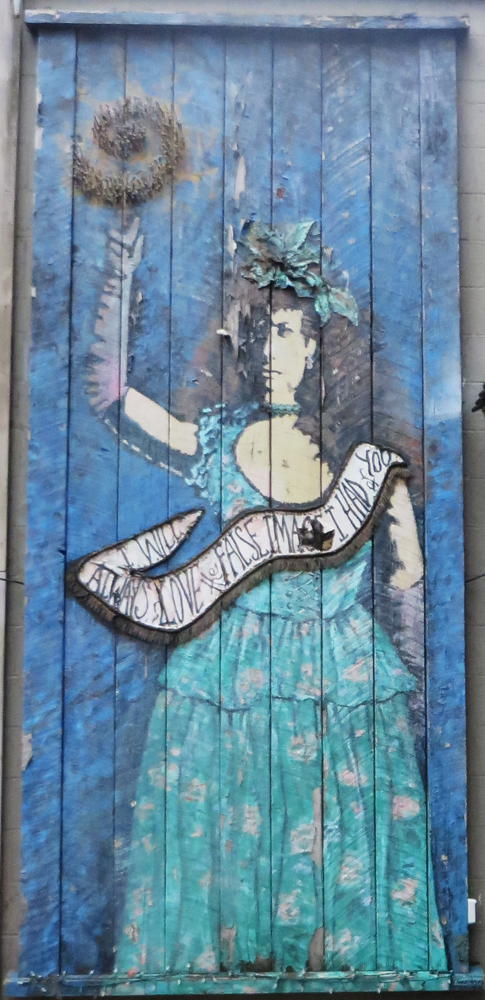The Literature Review
(Warning: This post gets fairly academic–some days, what I teach consumes me. Note how I can’t resist starting to do proper MLA citation and everything, after awhile. I’ll write about cats or something tomorrow.)
If there’s one thing this blog represents truly about me, it’s my need to turn everything, ANYthing, into a map towards meaning. This is, perhaps, ironic, today, as I finished teaching Byron’s Manfred, in which the protagonist disdains all orderly pursuit of meaning and states “I know not what I ask, nor what I seek: I feel but what thou art–and what I am.” However, he also states, “I would not make, but find a desolation.” If my life, at times, lacks meaning, it will not be without some effort to practice, at least, the Paterian–to discern, as best I can, the bread crumbs between my mind and the universe . . . even as I drop the crumbs myself.
But I digress.
Welcome to Yet Another One Week Thought Experiment. Needing focus and inspiration, I will turn, each day this week, to a story/recipe from The Ex-Boyfriend Cookbook by Thisbe Nissen and Erin Ergenbright at random and try to take lesson from that story/recipe. (Note: This cookbook contains stories and recipes from ex-boyfriends, not recipes for how to cook them.) In doing so, I take a page (this pun is funnier by the end of this sentence) from Wilkie Collins’s The Moonstone, in which Gabriel Betteredge practices a kind of bibliomancy, turning at random to a page in Daniel Defoe’s Robinson Crusoe when in doubt. The implication here is that any text can readily replace the Bible–and in that sense, I bring together both Manfred and Pater, who both believed that we are, ourselves, the location of all meaning. Right? Can’t go wrong. Later in the day, I will post what experiences seemed to resonate most with the call.
Day One: David Goldberg’s Flourless Chocolate Cake
Apparently, he was a complex and contradictory man. The authors describe him as “an Earth First-er who smoked Menthols.” Appropriately, I think Passover is this week.
Morning: My guess at the lesson: Easter / Passover season requires us to accept contradictions, expect the unlikely. Today, I will try to be even more open to experiencing opposites neutrally.
Evening: Did I mention I just taught Manfred ? If the Romantics are interested in shattering habit, Manfred, as one student aptly put it, shatters the habits of the Romantics. If, for Percy Bysshe Shelley, “the great secret of morals is Love, or an outgoing of our own nature, and an identification of ourselves with the beautiful that exists in thought, action, or person, not our own,” Byron’s Manfred, knowing not what he seeks, predictably, then, finds only himself, becomes, in essence, his own sublime:
The face of the earth hath madden’d me, and I
take refuge in her mysteries, and pierce
to the abodes of those who govern her–
but they can nothing aid me. I have sought
from them what they could not bestow, and now
I search no further.(2.2.39-43)
It’s not the beautiful, exactly, but Manfred’s triumph is that he controls the terms of his own dying, the glory of his own limits. As spirits command him to “Prostrate thyself, and thy condemned clay, / Child of the Earth! or dread the worst” (2.4.33-35), Manfred replies, “I know it; and yet ye see I kneel not” (2.4.35-36).
If I’d written this last week, I would have spoken of Keats, whose ability to hold together discordant elements, irreconcilable opposites, leaves him wrapped in his own mystical ambivalence: “Was it a vision or a waking dream?” But it’s this week, and Byron reminds me that
the mind which is immortal makes itself
requital for its good or evil thoughts–
is its own origin of ill and end–
and its own place and time [ . . . ]
I have not been thy dupe, nor am I thy prey–
But was my own destroyer, and will be
my own hereafter. (3.4.129-140)
So much for embracing opposites neutrally. This is basically a more empowering version of “we all die in our own arms, anyway,” modified to “HELL YEAH, I’m going to die in my own arms.” This is starting to seem like some kind of bizarre Byronian pep talk for the single girl I am. Come, spirits!
I suppose another way in which to interpret this chocolate cake recipe is to consider why the description of someone as “complex and contradictory” moves us so quickly from a Zen-like balance of Life as containing Whitmanian multitudes to contemplating the exhilarating, self-willed death of a protagonist who both deeply repents that his love has destroyed the woman he loves and repents not at all the incest committed. But that interpretation would lead us right back to the same conclusion: met neutrally or fervently, on either end of the Zen-to-Byron pole, we meet a new puzzle, a new sense of what cannot be fully understood, of the sublime, of so much meaning and so little that we don’t create fully, all by ourselves.

